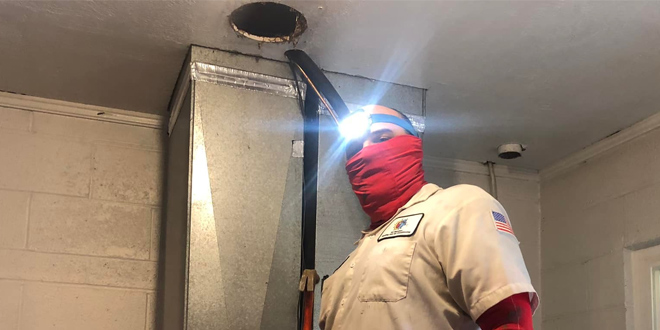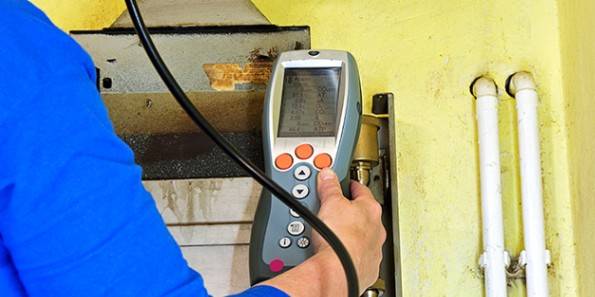
Winter in Vacaville can bring chilly weather, prompting residents to seal up their homes to keep the cold out. However, this cozy solution often results in poor indoor air quality as ventilation decreases. In this post, we’ll explore effective ways to maintain fresh air inside your home, even when temperatures drop.
Table of Contents
| Section | Overview |
| Why Indoor Air Quality Drops in Winter | Explains the common causes of poor air quality during winter months. |
| The Impact of Poor Indoor Air Quality | Highlights the health and comfort risks associated with stagnant air. |
| Top Tips to Improve Indoor Air Quality | Detailed solutions, including HVAC maintenance, air filtration, and ventilation. |
| Why Regular Heater Maintenance Matters | How maintaining your heating system improves air quality and performance. |
| Energy-Efficient Heater Installation | Explains when it’s time to upgrade your system and how a new unit supports clean air. |
| Relevant Data: Air Quality in Winter vs. Summer | A comparison of air quality metrics between winter and summer seasons. |
| Fun Facts About Winter Air Quality | Surprising and interesting facts related to indoor air during winter. |
| FAQ: Your Questions Answered | Answers to the most common questions about indoor air quality and HVAC care. |
| A Breath of Fresh Air with All Weather Heating & Air Conditioning | Conclusion with a call to action for contacting us. |
Glossary of Terms
- HEPA Filter – A high-efficiency filter that traps airborne particles, such as dust, pollen, and mold spores.
- VOC (Volatile Organic Compound) – Harmful gasses emitted from household products like paint or cleaning agents.
- Air Exchange Rate – The rate at which outdoor air replaces indoor air within a space.
- Humidity Levels – The amount of moisture in the air; ideal indoor humidity is between 30-50%.
- Carbon Monoxide – A dangerous, odorless gas produced by fuel-burning appliances that can impact indoor air quality.
Why Indoor Air Quality Drops in Winter
During winter, homeowners tend to keep windows and doors closed to retain warmth. While this helps in saving energy, it limits airflow, causing indoor air to become stale. Additionally, homes rely heavily on heating systems during this season, which can circulate dust and other contaminants if not properly maintained.
Moreover, many people turn to space heaters or fireplaces, which can release pollutants like carbon monoxide and soot into the air. Other sources, like cooking indoors and using harsh cleaning products, further compromise air quality. Without proper ventilation, these pollutants linger in the air, creating an unhealthy environment.

The Impact of Poor Indoor Air Quality
Poor air quality can affect both your health and comfort, especially if you or your family members have allergies, asthma, or other respiratory conditions. Stagnant air may carry dust, pet dander, or even mold spores, leading to symptoms such as:
- Coughing or sneezing
- Itchy eyes, nose, or throat
- Fatigue and headaches
- Worsening of asthma symptoms
Long-term exposure to poor air quality can also increase the risk of serious respiratory issues, making it essential to address the problem proactively.
Top Tips to Improve Indoor Air Quality
Here are some actionable steps to improve your home’s air quality during the winter months:
- Change Air Filters Regularly
Dirty air filters can’t effectively trap pollutants, allowing them to circulate indoors. Replace filters at least every 1-3 months, especially during peak heating season. - Use a HEPA Filter or Air Purifier
A high-efficiency HEPA filter or air purifier can remove allergens and VOCs, ensuring you breathe cleaner air. - Improve Ventilation
On milder days, open windows briefly to circulate fresh air. You can also install energy recovery ventilators (ERVs) to improve air exchange without losing heat. - Monitor Humidity Levels
Use a humidifier to maintain a comfortable moisture level. Too much humidity encourages mold growth, while too little dries out your skin and respiratory system. - Schedule Professional HVAC Maintenance
Regular heater maintenance ensures your system is running efficiently and not circulating dust or debris. Book your heater maintenance today to keep your indoor air clean.
Why Regular Heater Maintenance Matters
Heaters that are not properly maintained can blow dust, allergens, and even harmful gasses into your home. Routine maintenance ensures that:
- Air filters are cleaned or replaced.
- Ductwork is inspected for leaks or blockages.
- The heater runs efficiently, preventing energy waste.
By scheduling professional heater maintenance, you’ll not only improve air quality but also extend the life of your equipment. If your system is beyond repair, we can help with heater repair or suggest energy-efficient replacements.

Energy-Efficient Heater Installation
Is your heater struggling to keep up? If it’s more than 10-15 years old, it might be time to consider an upgrade. Installing a new heater can drastically improve air quality. Modern systems are more energy-efficient and come with advanced filtration features, helping to reduce dust and allergens in the air.
Air Quality in Winter vs. Summer
| Air Quality Metric | Winter | Summer |
| Ventilation Rate | Low | High |
| Humidity Levels | Low | Moderate |
| Allergens Present | Dust, Dander | Pollen |
| Average CO2 Levels | Higher | Lower |
Fun Facts About Winter Air Quality
- Homes built after 2000 are more airtight, improving energy efficiency but often trapping more pollutants indoors.
- Indoor air can be 2-5 times more polluted than outdoor air in winter months!
- Houseplants like snake plants and peace lilies help filter out toxins and improve air quality. 🌱
- Studies show that air quality improves mood—an important benefit during those gray winter days.
FAQ: Your Questions Answered
Can indoor air quality affect sleep?
Yes! Poor air quality can cause congestion, making it harder to breathe and sleep comfortably.
How often should I change my air filters in winter?
At least every 1-3 months, or more frequently if you have pets or allergies.
What is the ideal indoor humidity level?
Aim for 30-50% humidity for optimal comfort and air quality.
Does my heater impact air quality?
Yes, especially if it hasn’t been maintained. Dust and pollutants can accumulate and circulate through the system.
Are air purifiers worth it?
Absolutely! They help capture allergens, bacteria, and VOCs, making a noticeable difference in air quality.
How do I know if my air quality is poor?
Look for signs like lingering odors, dust buildup, and increased allergy symptoms.
Should I leave windows closed all winter?
Not entirely—try opening them briefly on warmer days to circulate fresh air.
How can I improve air quality without a humidifier?
You can place bowls of water near radiators to add moisture to the air.
Does cooking affect air quality?
Yes, especially if you don’t use ventilation. Always use exhaust fans while cooking.
A Breath of Fresh Air with All Weather Heating & Air Conditioning
Don’t let poor air quality ruin your winter! At All Weather Heating & Air Conditioning, we’re here to help you create a healthier, more comfortable indoor environment. Whether you need heater maintenance, repairs, or a complete heater installation, we’ve got you covered.
For personalized recommendations, contact us today and breathe easier this winter. ❄️

